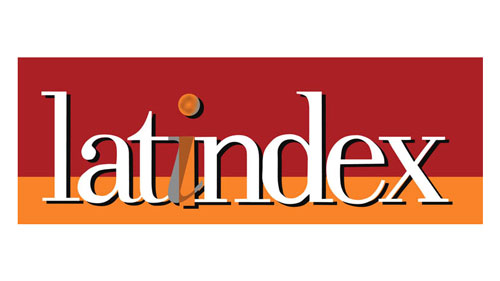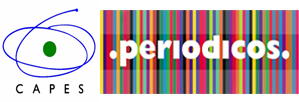Assessment literacy for foreign language teachers of children: theoretical and practical guidelines
DOI:
https://doi.org/10.26512/rhla.v19i2.26804Keywords:
Assessment, Assessment Literacy, Teaching of Foreign Languages to Children, Teacher EducationAbstract
Research in the area of teaching foreign languages to children has seen a steady growth (SANTOS, 2009; TONELLI; CRISTOVÃO, 2010). Concerning the role of assessment in this context, however, there are still many gaps to be filled, not only due to a lack of qualification in the teaching of young learners, but also for a lack of understanding the role of assessment as the bond between teaching and learning (SCARAMUCCI, 2006). Therefore, this research elaborates on the characteristics of assessment literacy (STIGGINS, 1991) in contexts of foreign languages (INBAR-LOURIE, 2008a; QUEVEDO-CAMARGO; SCARAMUCCI, 2018) for teachers of children. In addition to knowing about assessment and about language, this teacher must understand the levels of development of children (McKAY, 2006), since these differences shape the way the child is taught and, therefore, assessed. This distinct body of knowledge is what defines assessment literacy for foreign language teachers of young learners, our proposal of change and expansion of the previous concept. We also make suggestions of assessment activities as a way to illustrate this perspective. Being aware of the power of assessment (SHOHAMY, 2001), we hope this research contributes to the perception of assessment literacy as a tool for change in assessment culture(s) (INBAR-LOURIE, 2008b) and, as a consequence, of educational transformation.
Downloads
References
BOÉSSIO, C. P. D. Reflexões sobre o professor de língua espanhola que atuará com crianças das séries/anos iniciais do Fundamental. In: TONELLI, J. R. A; CHAGURI, J.de P. Ensino de língua estrangeira para crianças: o ensino e a formação em foco. Curitiba: Appris, 2013. p. 219-238.
BONESI, P. G.; DE SOUZA, N. A. Fatores que dificultam a transformação da avaliação na escola. Estudos em Avaliação Educacional, Londrina, v. 17, n. 34, p. 129-154, maio/ago. 2006.
BROWN, D. Language assessment: principles and classroom practices. White Plains: Longman, 2004.
CAMERON, L. Teaching English to young learners. Cambridge: Cambridge University Press, 2001.
CARLESS, D. Learning-oriented assessment: conceptual bases and practical implications. Innovations in Education and Teaching International. Hong Kong, v. 44, n. 1, p. 57-66, 2007.
DOCHY, F.; SEGERS, M. Using information and communication technology (ICT) in tomorrow’s universities and using assessment as a tool for learning by means of ICT. In: VAN DER MOLEN, H. J. (Ed.). Virtual university? Educational environments of the future. London: Portland, 2001. p. 67-83.
FURTOSO, V. A. B. Interface entre avaliação e ensino-aprendizagem: desafios na formação de professores. In: DURÃO, A. B. A. B.; ANDRADE, O. G.; REIS, S. (Orgs.). Reflexões sobre o ensino das línguas estrangeiras. 1. ed. Londrina: Moriá Editora, 2008. p. 127-158.
FURTOSO, V. A. B. Avaliação de proficiência em português para falantes de outras línguas: relação com ensino e aprendizagem. In: MENDES, E. (Org.). Diálogos interculturais: ensino e formação em português língua estrangeira. Campinas: Pontes Editores, 2011. p. 207-236.
GENESEE, F.; HAMAYAN, E. V. Classroom-based assessment. In: GENESSE, F. (Ed.). Educating second language children: the whole child, the whole curriculum, the whole community. Cambridge: Cambridge University Press, 1994. p. 212-239.
GENESEE, F.; UPSHUR, J. A. Classroom-based evaluation in second language education. Cambridge: Cambridge University Press, 1996.
HART, D. Authentic assessment: a handbook for educators. Reading: Addison-Wesley Publishing Company, 1994.
HATTIE, J. Visible learning for teachers: maximizing impact on learning. New York: Routledge, 2012.
HAYDT, R. C. Avaliação do processo ensino-aprendizagem. São Paulo: Ática, 2004.
INBAR-LOURIE, O. Constructing a language assessment knowledge base: a focus on language assessment courses. Language Testing, v. 25, n. 3, p. 385-402, 2008a.
INBAR-LOURIE, O. Language assessment culture. In: HORNBERGER, N.; SHOHAMY, E. (Eds.). Encyclopedia of language and education. V. 7: language testing and assessment. Nova York: Springer Science and Business Media, Inc., 2. ed., 2008b. p. 285-300.
IOANNOU-GEORGIOU, S.; PAVLOU, P. Assessing young learners. Oxford: Oxford University Press, 2014.
LEUNG, C. et al. Using assessment to promote learning: clarifying construct, theories, and practices. In: DAVIS, J. McE.; NORRIS, J. M.; MALONE, M. E.; McKAY, T. H.; SON, Y. (Eds.). Useful assessment and evaluation in language education. Washington, D.C.: Georgetown University Press, 2018. p. 75-91.
LUCKESI, C. C. Processo versus produto. ABC Educatio, São Paulo, n. 52, p. 20-21, dez./2005-jan./2006.
MALLOY, A. Seven essential considerations for assessing young learners. Modern English Teachers, v. 24, n. 1, p. 20-23, 2015.
McKAY, P. Assessing young language learners. Cambridge: University Press, 2006.
MUÑOZ, C. Starting young ”“ is that all it takes? Babylonia, Barcelona, v. 1, n. 14, 2014. Disponível em: <http://babylonia.ch/fileadmin/user_upload/documents/2014-1/Munoz.pdf>. Acesso em: 18 jul. 2019.
O’MALLEY, J. M.; PIERCE, L. V. Authentic assessment for English language learners: practical approaches for teachers. Reading: Addison-Wesley Publishing Company, 1996.
PUCKETT, M. B.; BLACK, J. K. Authentic Assessment of the Young Child. Upper Saddle River: Prentice-Hall, 2000.
QUEVEDO-CAMARGO, G. Efeito retroativo da avaliação na aprendizagem de línguas estrangeiras: que fenômeno é esse? In: MULIK, K. B.; RETORTA, M. S. (Org.). Avaliação no ensino-aprendizagem de línguas estrangeiras: diálogos, pesquisas e reflexões. 1. ed. Campinas: Pontes Editores, 2014. p. 77-94.
QUEVEDO-CAMARGO, G.; SCARAMUCCI, M. V. R. O conceito de letramento em avaliação de língua: origem e relevância para o contexto brasileiro. Linguagem, Estudos e Pesquisas, v. 22, n. 1, p. 225-245, 2018.
REA-DICKINS, P.; RIXON, S. Assessment of young learners’ English: reasons and means. RIXON, S. (Ed.). Young learners of English: some research perspectives. Harlow: Longman, 1999.
SANTOS, L. I. S. Língua inglesa em anos iniciais do ensino fundamental: fazer pedagógico e formação docente. 2009. 198 f. Tese (doutorado) ”“ Instituto de Biociências, Letras e Ciências Exatas, Universidade Estadual Paulista Júlio de Mesquita Filho, 2009. Disponível em: http://hdl.handle.net/11449/103520.
SCARAMUCCI, M. V. R. O professor avaliador: sobre a importância da avaliação na formação do professor de língua estrangeira. In: ROTTAVA, L; SANTOS, S. R. (Org.) Ensino-aprendizagem de línguas: língua estrangeira. Coleção Linguagens, Ijuí: Editora da Unijuí, 2006. p. 49-64.
SCARAMUCCI, M. V.; COSTA, L. P.; ROCHA, C. H. A avaliação no ensino-aprendizagem de línguas para crianças: conceitos e práticas. In: ROCHA, C. H.; BASSO, E. A. (Org.). Ensinar e aprender língua estrangeira nas diferentes idades: reflexões para professores e formadores. São Carlos: Claraluz, 2008.
SHAABAN, K. Assessment of young learners, v. 39, n. 4, October - December 2001.
SHIN, J. K.; CRANDALL, J. Teaching young learners English: from theory to practice. Boston: Cengage Learning, 2014.
SHOHAMY, E. The power of tests: critical perspectives on the uses of language tests. Harlow: Longman, 2001.
STIGGINS, R. Assessment Literacy. Phi Delta Kappan, v. 72, p. 534-539, 1991.
TONELLI, J. R. A. Professores de língua adicional para crianças: atores de espaços vazios? In: REIS, S. (Org.) Profissionalização docente: história, políticas e ética. EDUEL, 2017.
TONELLI, J. R. A.; CHAGURI, J. P. A importância de uma língua estrangeira na educação infantil. In: TONELLI, Juliana Reichert Assunção; CHAGURI, Jonathas de Paula (Org.). Espaço para reflexão sobre ensino de línguas. 1. ed. v. 1. Maringá: Editora da Universidade Estadual de Maringá, 2014. p. 247-275.
TONELLI, J. R. A.; CRISTOVÃO, V. L. L. O papel dos cursos de Letras na formação de professores de inglês para crianças. Calidoscópio, v. 8, n. 1, p. 65-76, 2010.
TONELLI, J. R. A. QUEVEDO-CAMARGO, G. Teaching EFL to children: reflections on (future) teachers’ language assessment literacy. Horizontes de Linguística Aplicada, v. 17, n. 1, p. 63-91, 2018.
TSAGARI, D. Assessment Orientations of State Primary EFL Teachers in Two Mediterranean Countries. Center for Educational Policy Studies Journal, v. 6, n. 1, p. 9-30, 2016.
Downloads
Published
How to Cite
Issue
Section
License
Copyright (c) 2020 Revista Horizontes de Linguistica Aplicada

This work is licensed under a Creative Commons Attribution-NonCommercial-NoDerivatives 4.0 International License.

A Revista Horizontes de Linguística Aplicada de http://seer.bce.unb.br/index.php/horizontesla/index é licenciado sob uma Licença Creative Commons Atribuição-Uso não-comercial-Vedada a criação de obras derivadas 3.0 Unported.
- Autores mantém os direitos autorais e concedem à revista o direito de primeira publicação, sendo o trabalho simultaneamente licenciado sob a Creative Commons Attribution License o que permite o compartilhamento do trabalho com reconhecimento da autoria do trabalho e publicação inicial nesta revista.
- Autores têm autorização para assumir contratos adicionais separadamente, para distribuição não-exclusiva da versão do trabalho publicada nesta revista (ex.: publicar em repositório institucional ou como capítulo de livro), com reconhecimento de autoria e publicação inicial nesta revista.




